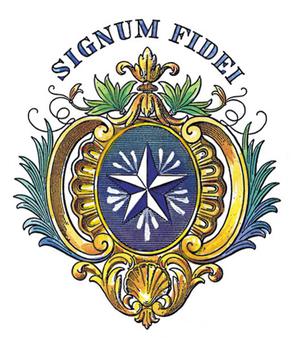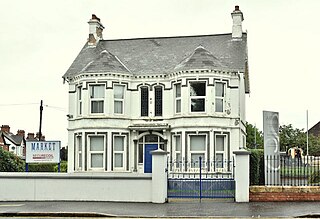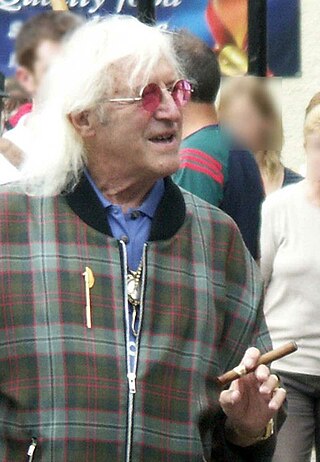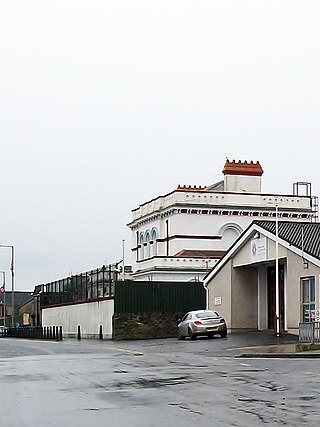Related Research Articles

Nocturnal enuresis (NE), also informally called bedwetting, is involuntary urination while asleep after the age at which bladder control usually begins. Bedwetting in children and adults can result in emotional stress. Complications can include urinary tract infections.

The De La Salle Brothers, officially named the Institute of the Brothers of the Christian Schools abbreviated FSC, is a Catholic lay religious congregation of pontifical right for men founded in France by Jean-Baptiste de La Salle (1651–1719), and now based in Rome, Italy. The De La Salle Brothers are also known as the Christian Brothers, French Christian Brothers, or Lasallian Brothers. The Lasallian Christian Brothers are distinct from the Congregation of Christian Brothers, often also referred to as simply the Christian Brothers, or Irish Christian Brothers. The Lasallian Brothers use the post-nominal abbreviation FSC to denote their membership of the order, and the honorific title Brother, abbreviated "Br."

Home Children was the child migration scheme founded by Annie MacPherson in 1869, under which more than 100,000 children were sent from the United Kingdom to Australia, Canada, New Zealand, and South Africa. The programme was largely discontinued in the 1930s but not entirely terminated until the 1970s.

The Kincora Boys' Home was a boys' home in Belfast, Northern Ireland, United Kingdom, that was the scene of serious organised child sexual abuse. It caused a scandal and led to an attempted cover-up in 1980, with allegations of state collusion. On 31 May 2016, the Northern Ireland Historical Institutional Abuse Inquiry (HIA) began examining allegations relating to Kincora, including claims that a paedophile ring with links to the intelligence services was based there. Northern Ireland Secretary Theresa Villiers said that all state agencies would co-operate with the inquiry.
The Orkney child abuse scandal began on 27 February 1991, when social workers and police removed children—five boys and four girls, aged eight to fifteen and all from the families of English "incomers"—from their homes on the island of South Ronaldsay in Orkney, Scotland, because of allegations of child abuse. The children denied that any abuse had occurred, and medical examinations did not reveal any evidence of abuse.

Fort Augustus Abbey, properly St. Benedict's Abbey, at Fort Augustus, Inverness-shire, Scotland, was a Benedictine monastery, from late in the nineteenth century to 1998 that also housed a school for boys until 1993.
The North Wales child abuse scandal was the subject of a three-year, £13 million investigation into the physical and sexual abuse of children in care homes in the counties of Clwyd and Gwynedd, in North Wales, including the Bryn Estyn children's home at Wrexham, between 1974 and 1990. The report into the scandal, headed by retired High Court judge Sir Ronald Waterhouse QC, which was published in 2000, resulted in changes in policy in England and Wales into how authorities deal with children in care, and to the settling of 140 compensation claims on behalf of victims of child abuse.
The Royal Commission of Inquiry into the Response of the Newfoundland Criminal Justice System to Complaints also known as the Hughes Inquiry was a Canadian royal commission chaired by a retired judge, Samuel Hughes, launched after allegations of sexual abuse by members of the Congregation of Christian Brothers at Mount Cashel Orphanage in Newfoundland. The commission began inquiry investigations on 1 June 1989 and published its report in April 1992.
The Catholic sexual abuse scandal in Victoria is part of the Catholic clerical sexual abuse in Australia and the much wider Catholic sexual abuse scandal in general, which involves charges, convictions, trials and ongoing investigations into allegations of sex crimes committed by Catholic priests and members of religious orders. The Catholic Church in Victoria has been implicated in a reported 40 suicides among about 620 sexual abuse victims acknowledged to the public after internal investigations by the Catholic Church in Victoria.
St Columba's College was an independent, preparatory Marist college in Largs, Ayrshire. It served as a prep school feeder for Catholic boarding schools throughout the United Kingdom with links to St. Joseph's College, Dumfries and Ampleforth. The school closed in 1982. Since 1998 a number of reports of sexual and physical abuse of at least 9 pupils dating from between 1950 and 1982 have emerged. Phase 4 of the Scottish Child Abuse Inquiry examined the St Columba's abuse in October 2019.
The sexual abuse scandal in the Congregation of Christian Brothers is a major chapter in the series of Catholic sex abuse cases in various Western jurisdictions.
The Catholic sexual abuse scandal in Europe has affected several dioceses in European nations. Italy is an exceptional case as the 1929 Lateran Treaty gave the Vatican legal autonomy from Italy, giving the clergy recourse to Vatican rather than Italian law.

The Mount Cashel Orphanage, known locally as the Mount Cashel Boys' Home, was a boys' orphanage located in St. John's, Newfoundland and Labrador, Canada. The orphanage was operated by the Congregation of Christian Brothers, and became infamous for a sexual abuse scandal and cover-up by the Royal Newfoundland Constabulary and NL justice officials.
Forgotten Australians or care leavers are terms referring to the estimated 500,000 children who experienced care in institutions or outside a home setting in Australia during the 20th century. The Australian Senate committee used the term in the title of its report which resulted from its 2003–2004 "Inquiry into Children in Institutional Care", which looked primarily at those affected children who were not covered by the 1997 Bringing Them Home report, which focused on Aboriginal children, and the 2001 report Lost Innocents: Righting the Record which reported on an inquiry into child migrants.
The Congregation of the Sisters of Nazareth, until recently known as the Poor Sisters of Nazareth, are a Roman Catholic apostolic congregation of religious sisters of pontifical right, based in London, England. Members live in "Nazareth Houses" in English-speaking countries around the world: the UK, Ireland, United States, Australia, New Zealand and South Africa.

It emerged in late 2012 that Jimmy Savile, a British media personality who had died the previous year, had sexually abused many people throughout his life, mostly children but some as old as 75, and mostly female. He had been well known in the United Kingdom for his eccentric image and was generally respected for his charitable work, which associated him with the British monarchy and other individuals of personal power.
The Elm Guest House was a hotel in Rocks Lane, near Barnes Common in southwest London. In a list produced by convicted fraudster Chris Fay, several prominent British men were alleged to have engaged in sexual abuse and child grooming at the Guest House in the late 1970s and early 1980s. Labour MP Tom Watson, having heard testimony from Carl Beech, suggested in an October 2012 statement to the House of Commons that a paedophile network which had existed at this time may have brought children to parties at the private residence.

The 2014–2016 Northern Ireland Historical Institutional Abuse Inquiry, often referred to as the HIA Inquiry, is the largest inquiry into historical institutional sexual and physical abuse of children in Northern Ireland legal history. Its remit covers institutions in Northern Ireland that provided residential care for children from 1922 to 1995, but excludes most church-run schools.

The Scottish Child Abuse Inquiry was established in October 2015 to inquire into cases of abuse of children in care in Scotland. It was to report and make recommendations within four years by 2019. But this deadline was later changed to "as soon as reasonably practicable". Concerns have been raised about mounting costs and delays in the inquiry. Six years after the start of the on-going inquiry and long after the original deadline, Lady Smith released a report which was critical of the previous Scottish government for the 'woeful and avoidable' delay in setting up the inquiry.
The little Danes experiment, also known simply as the experiment, was a 1951 Danish operation where 22 Greenlandic Inuit children were sent to Danish foster families in an attempt to re-educate them as "little Danes". While the children were all supposed to be orphans, most were not. Six children were adopted while in Denmark, and sixteen returned to Greenland, only to be placed in Danish-speaking orphanages and never live with their families again. Half of the children experienced mental health disturbances, and half of them died in young adulthood. The government of Denmark officially apologised in 2020, after several years of demands from Greenlandic officials.
References
Citations
- ↑ BBC 2019; Rytter & Rasmussen 2015a, p. 9.
- 1 2 3 4 BBC 2019.
- 1 2 Rytter & Rasmussen 2015b, p. 98.
- ↑ Rytter & Rasmussen 2015a, p. 9.
- 1 2 3 Villadsen 2013, p. 210.
- ↑ Sköld 2016, p. 496; Villadsen 2013, p. 210.
- ↑ Sköld & Markkola 2020, p. 151.
- ↑ Rytter & Rasmussen 2015b, pp. 97, 103.
- 1 2 Rytter & Rasmussen 2015b, p. 99.
- 1 2 3 Rytter & Rasmussen 2015b, p. 100.
- ↑ Rytter & Rasmussen 2015b, p. 101.
- 1 2 3 Villadsen 2013, p. 211.
Bibliography
- Rytter, Maria; Rasmussen, Jacob Knage (2015a). "A great find: Turning the world upside down". The Journal of the History of Childhood and Youth. 8 (1): 9–16. doi:10.1353/hcy.2015.0011. S2CID 144957761.
- Rytter, Maria; Rasmussen, Jacob Knage (2015b). "Denmark: The Godhavn Inquiry". In Sköld, Johanna; Swain, Shurlee (eds.). Apologies and the legacy of abuse of children in 'care': International perspectives. Houndmills, Basingstoke, Hampshire. ISBN 9781349498697.
{{cite book}}: CS1 maint: location missing publisher (link) - Sköld, Johanna (3 July 2016). "The truth about abuse? A comparative approach to inquiry narratives on historical institutional child abuse". History of Education. 45 (4): 492–509. doi:10.1080/0046760X.2016.1177607. S2CID 46667649.
- Sköld, Johanna; Markkola, Pirjo (14 March 2020). "History of child welfare: A present political concern". Scandinavian Journal of History. 45 (2): 143–158. doi: 10.1080/03468755.2020.1764383 . S2CID 221178921.
- Villadsen, Lisa S. (2013). "The regretful acknowledgement: A dignified end to a disgraceful story?". At the Interface / Probing the Boundaries. 86: 209–228.
- "Danish PM apologises for historical abuse in children's homes". BBC News. 13 August 2019. Retrieved 13 March 2022.